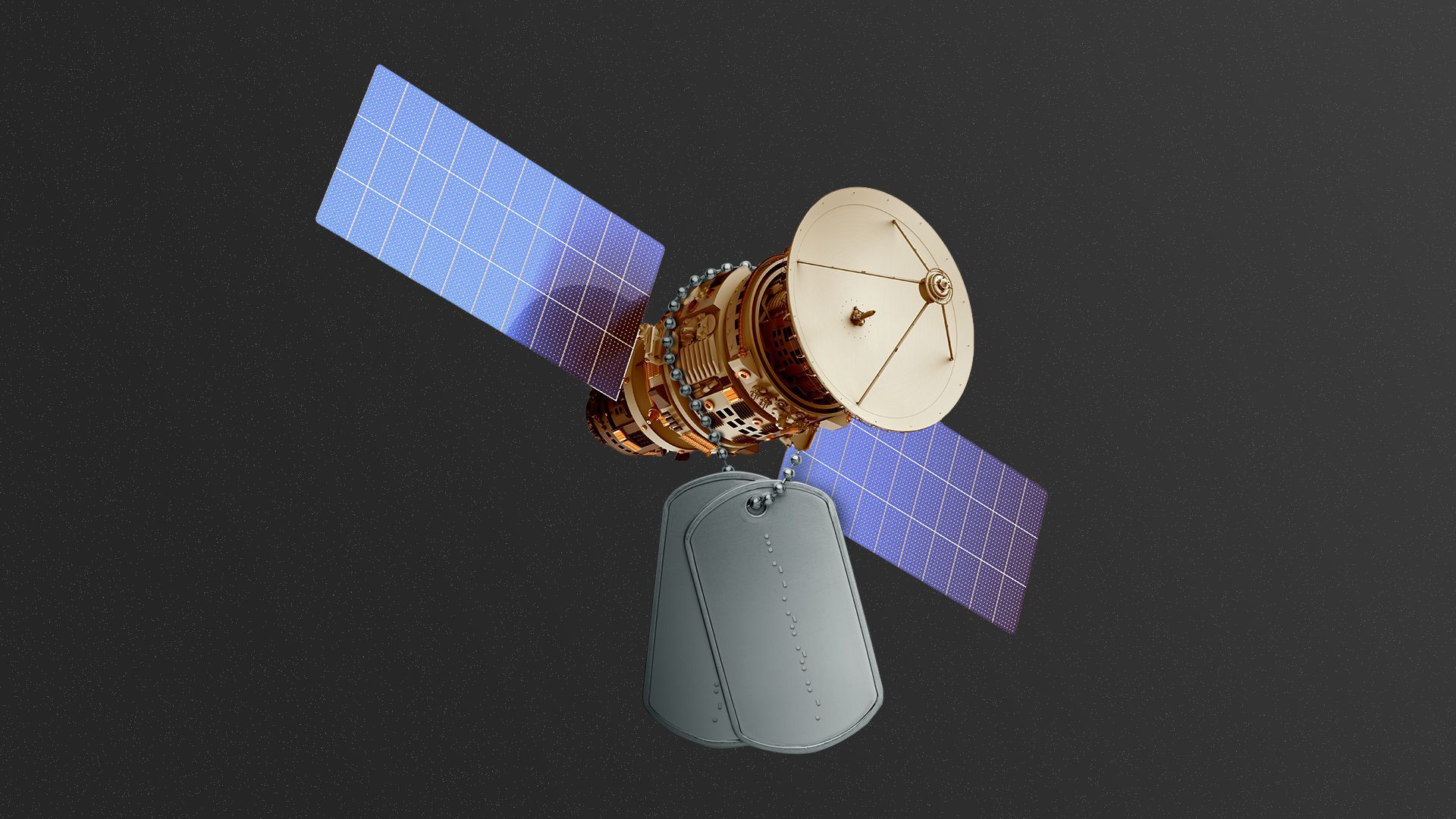How new internet-beaming satellites could change wars
Add Axios as your preferred source to
see more of our stories on Google.

Illustration: Aïda Amer/Axios
Huge constellations of satellites expected to launch to orbit in the next few years are an opportunity for defense agencies to expand their communications — and transform the nature of conflict.
Why it matters: National security experts warn that China and other nations are ahead of the U.S. when it comes to beefing up their weaponized capabilities in orbit, potentially putting U.S. assets on Earth and in space in jeopardy.
- If the government makes a deal to fly instruments onboard commercial satellites, it could effectively hide military assets in plain sight.
- It could also make it easier to get data back to Earth more quickly and give the government a way to collect data from space without launching expensive satellites of its own.
"Instead of having all of your national security dongles hanging off of one giant satellite, you could distribute them around to a bunch of other satellites both DoD [Department of Defense] as well as commercial."— Brian Weeden, of the Secure World Foundation, to Axios
What's happening: The Air Force has tested SpaceX’s Starlink internet service aboard aircraft, and the company holds a $28 million contract with the government agency to test new ways of using Starlink.
- The Space Development Agency is also considering buying satellites from private companies in order to build out its own constellation.
- Government contracts like these could help keep companies in the black as they work to prove that their business models are sustainable and court other customers.
Yes, but: The satellites expected to make up mega-constellations are small and economical, meaning it might be difficult to include hosted payloads on them at all.
- It could also be risky to put sensitive information on commercial networks and unproven systems.
- The U.S. government has launched instruments aboard commercial satellites before, but it didn't quite catch on due in part to the fact that agencies couldn't have full control of these satellites operated by private companies, raising questions about who controls what information and hardware.
The bottom line: Huge constellations of satellites could reframe the way the U.S. military is able to fight wars but further blur the line between government agencies and the companies they rely on.
Go deeper: Trump's Space Force gets a new, recognizable logo
